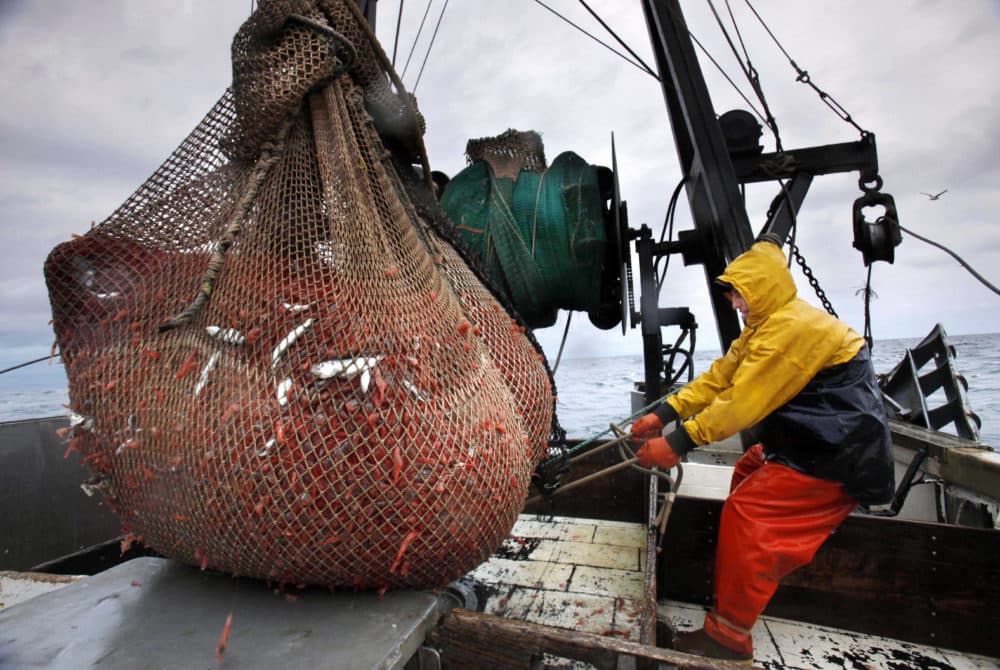Advertisement
Scientists think longfin squid are reason for Maine's prized shrimp fishery collapse

Scientists think they've found the chief culprit in the collapse of Maine's prized shrimp fishery. They're pointing the finger at a voracious species of squid that rode in on warming waters almost ten years ago.
Maine shrimp were long a regional delicacy fishermen and diners alike looked forward to each fall, with 10 million pounds and more harvested annually earlier in this century. While they're small compared to other commercially-harvested shrimp, fans say they are sweeter too.
But in 2012, their population collapsed, federal regulators closed the fishery, and they haven't recovered since.
Their latin name is Pandalus borealis, which gives a nod to their preference for cold arctic waters. Maine was always at the southern edge of their range, and the crash coincided with an extreme marine heat wave that warmed the Gulf of Maine's waters to the highest temperatures since the 1950s.
But some thought there had to be more to the shrimp's disappearance than just heat-sensitivity.
"After I saw this I remembered a fisherman saying to me 'it's the damn squid.' He was saying there had been squid all over the place that spring," Richards said.
Anne Richards is a fisheries biologist based in Woods Hole Massachusetts, who spent her career at the National Oceanic and Atmospheric Administration. In 2012, she was the first to get a look at data from a trawl survey of the Gulf of Maine's inhabitants, and she was horrified to see the shrimp's numbers take a nosedive.
It wasn't until her recent retirement, though, that Richards made a broader review of the trawl survey's findings. She discovered that at the same time as the number of shrimp shrank, the population of longfin squid exploded off Maine's southern coastline. Usually more prevalent in mid-Atlantic waters, the squid were here earlier and in much higher numbers than she'd seen before.
"It was dramatic. And the other thing was that year was not only extremely warm and warm throughout the year, but spring came early," Richards said. "Because of the early spring the squid came in early and we think the shrimp were still there more than usual, so there was much more overlap between the squid and shrimp than there would ordinarily be."
The data allowed Richards and a colleague to rule out ocean temperature as the primary cause of mortality, and to rule out other predators as well, including fishermen.
Richards said that shows that even when warming waters aren't necessarily directly killing temperature-sensitive animals, climate change can drive important shifts in where and when prey and predators occupy the same area. In this case, that benefited longfin squid, and decimated Maine shrimp. The fishery remains closed.
This story is a production of the New England News Collaborative. It was originally published by Maine Public on Sept. 30, 2020.